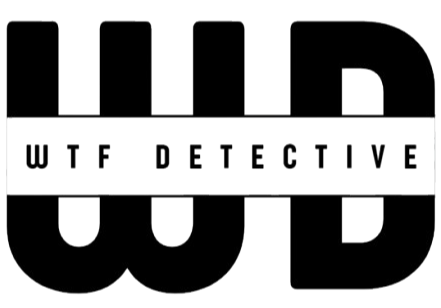Albrecht, a lifelong Republican who voted three times for Trump, is now leading the legal fight against his sweeping tariffs. As president of the Liberty Justice Center, a right-leaning legal organization, she represents a coalition of businesses suing over the policy’s legality — a sign of how sharply the issue has divided conservatives.
The Liberty Justice Center first gained national recognition in 2018 when it won a landmark Supreme Court case that barred public sector workers from being forced to pay union fees. The ruling dealt a major blow to organized labor, which had collected millions from such payments.
Since then, the group has doubled in size. Based in Texas, it now employs 11 attorneys handling litigation in 36 states and operates with a $3 million budget. The firm has filed nearly 140 lawsuits since its founding in 2011, including challenges to alleged race-based criteria in college admissions and hiring, and to school policies that restrict sharing information with parents about their children’s gender identity.
Albrecht said her team had already been exploring cases on executive overreach when Trump used a 1970s-era emergency law to unilaterally impose tariffs in February. Soon after, the Liberty Justice Center joined forces with a law professor to recruit five small businesses to serve as plaintiffs in a case the Supreme Court will hear on Wednesday.
“We knew the businesses were going to have to represent all of America’s small businesses,” Albrecht said. “And we really needed an easy story to tell.”
The plaintiffs include a wine importer, a women’s cycling apparel company, a manufacturer of educational electronics kits, a plastic pipe maker, and a specialty fishing tackle seller. Each relies on imported goods from 27 countries and blames the tariffs for higher consumer prices and staff cuts.
“I can call my mom and in 30 seconds she understands what the case is about,” Albrecht said.
To argue the case, the center enlisted two heavyweight Supreme Court advocates from opposite sides of the political spectrum — Michael W. McConnell, a former judge appointed by President George W. Bush, and Neal Katyal, who served as acting solicitor general under President Barack Obama. Katyal will argue before the justices after winning a coin toss with another attorney representing a separate business before the court.
Supported by prominent scholars from across the ideological divide, the coalition contends Trump overstepped his authority by invoking the International Emergency Economic Powers Act of 1977 — a law never before used to levy tariffs on nearly all of America’s major trading partners.
The administration argues the law was deliberately written to give presidents broad latitude to act in foreign emergencies, and that courts should not interfere in such decisions.
Founded in 2011, the Liberty Justice Center was originally focused on fighting public-sector unions and limiting government power in Illinois. Working closely with the Illinois Policy Center, a libertarian think tank, the group benefited from financial support from industrialist Richard Uihlein, a major Republican donor.
A pivotal moment came in 2016, when the Supreme Court appeared poised to rule against union fees — until Justice Antonin Scalia’s death left the court deadlocked 4–4. The Liberty Justice Center later brought the Janus v. AFSCME case, which in 2018 delivered a 5–4 decision striking down mandatory union fees for public employees.
Since then, the group has expanded its focus — taking on cases challenging the Biden administration’s COVID-19 vaccine mandates and representing conservative bloggers in lawsuits over the federal TikTok ban.
The challenge to Trump’s tariffs began in February, when Ilya Somin, a law professor at George Mason University’s Antonin Scalia Law School, wrote a blog post urging businesses to contest the president’s use of emergency powers. “The Constitution gives Congress, not the president, the power to regulate commerce with foreign nations,” he argued.
At first, few companies were willing to sue. “When you sue the government and you’re regulated by the government, it’s not unusual that you would be a little concerned,” said Jeffrey M. Schwab, the group’s senior counsel.
But after Trump expanded the tariffs in April, Somin renewed his appeal — this time drawing a flood of responses. The Liberty Justice Center ultimately selected five companies from a long list of applicants.
Albrecht declined to name individual or foundation donors but confirmed the plaintiffs are being represented free of charge. Tax filings show the center has received $52,000 from the National Christian Charitable Foundation, $80,000 from Club for Growth, and $250,000 from the Walton Family Foundation.
Albrecht, who became board chair in 2020, previously worked on a school choice program backed by former Illinois Gov. Bruce Rauner and has a background spanning finance, education, and retail.
Raised on an Iowa farm, she said her admiration for Ronald Reagan — who famously denounced tariffs — stems from her grandparents. Reagan’s anti-tariff remarks recently resurfaced in a dispute between Trump and Canada after Ontario aired an ad quoting the former president. Canadian Prime Minister Mark Carney later said he apologized to Trump for the ad.
“I thought the Republicans were against tariffs,” Schwab said. “It never really occurred to me that this would be an issue that I would be fighting a Republican president on.” “It’s about the presidency, not about the president, and it’s about the Constitution,” she said. “We’ve made it about the separation of powers, and that applies to everybody, whether you voted for him or not.”



